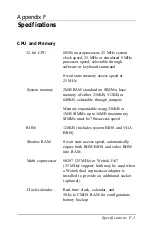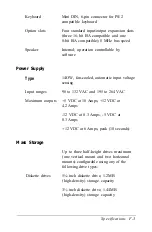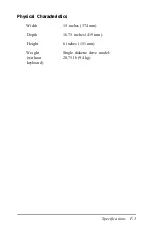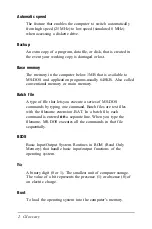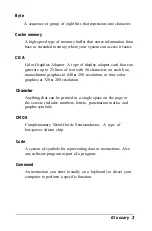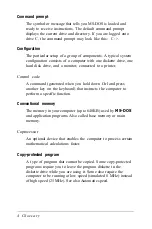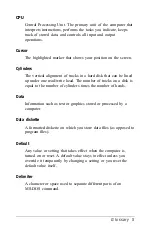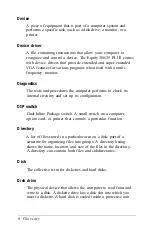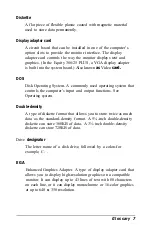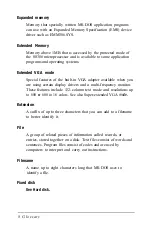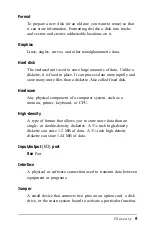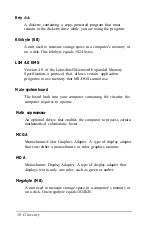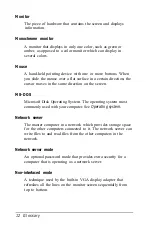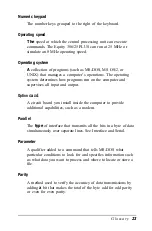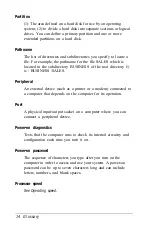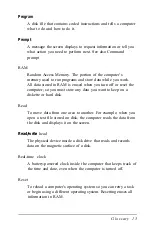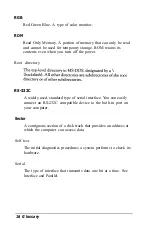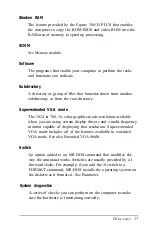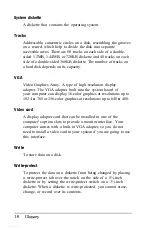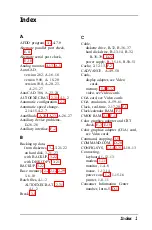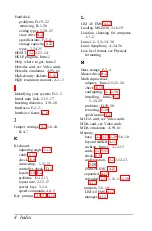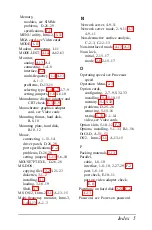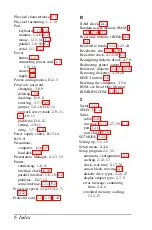
Format
To prepare a new disk (or an old one you want to reuse) so that
it can store information. Formatting divides a disk into tracks
and sectors and creates addressable locations on it.
Graphics
Lines, angles, curves, and other nonalphanumeric data.
Hard disk
The enclosed unit used to store large amounts of data. Unlike a
diskette, it is fixed in place. It can process data more rapidly and
store many more files than a diskette. Also called fixed disk.
Hardware
Any physical component of a computer system, such as a
monitor, printer, keyboard, or CPU.
High-density
A type of format that allows you to store more data than on
single- or double-density diskettes. A 5¼-inch high-density
diskette can store 1.2 MB of data. A 3½-inch high-density
diskette can store 1.44 MB of data.
Input/output
(I/O)
port
See
Port.
Interface
A physical or software connection used to transmit data between
equipment or programs.
Jumper
A small device that connects two pins on an option card, a disk
drive, or the main system board to activate a particular function.
G l o s s a r y
9
Summary of Contents for Equity 386/25
Page 1: ......
Page 3: ......
Page 14: ...xii ...
Page 20: ...6 lntroduction ...
Page 63: ...Hard disk drive types continued Running the Setup Program 2 25 ...
Page 142: ...5 34 lnstalling and Removing Options ...
Page 248: ...C 14 Physically Formatting a Hard Disk ...
Page 298: ...F 6 Specifications ...
Page 326: ......

